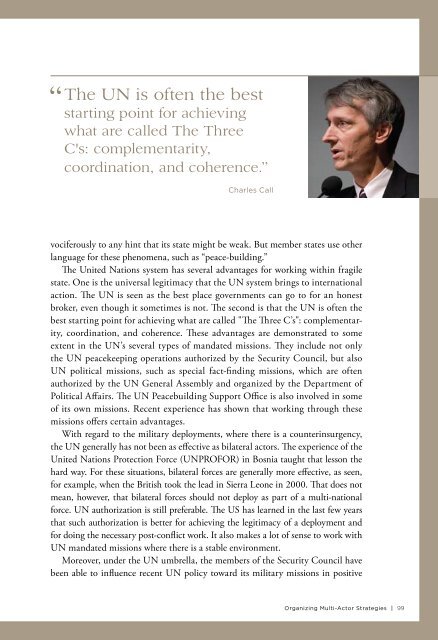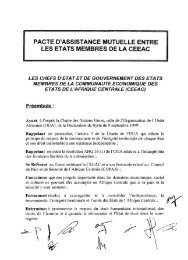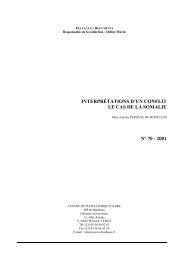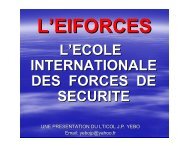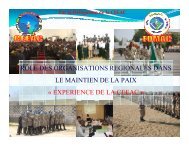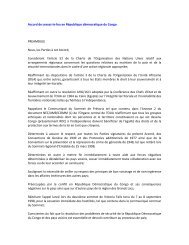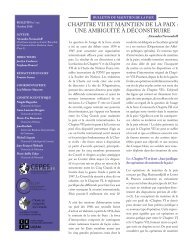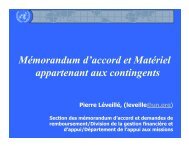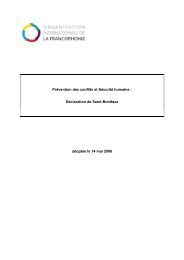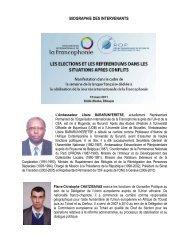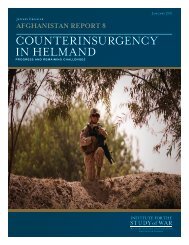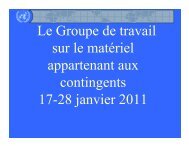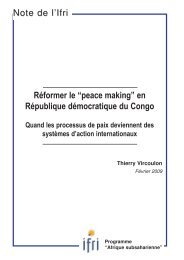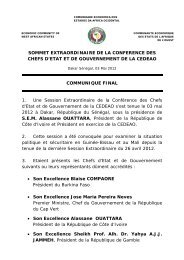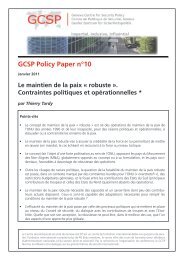engaging fragile states - Woodrow Wilson International Center for ...
engaging fragile states - Woodrow Wilson International Center for ...
engaging fragile states - Woodrow Wilson International Center for ...
You also want an ePaper? Increase the reach of your titles
YUMPU automatically turns print PDFs into web optimized ePapers that Google loves.
“<br />
The UN is often the best<br />
starting point <strong>for</strong> achieving<br />
what are called The Three<br />
C's: complementarity,<br />
coordination, and coherence.’’<br />
Charles Call<br />
vociferously to any hint that its state might be weak. But member <strong>states</strong> use other<br />
language <strong>for</strong> these phenomena, such as “peace-building.”<br />
The United Nations system has several advantages <strong>for</strong> working within <strong>fragile</strong><br />
state. One is the universal legitimacy that the UN system brings to international<br />
action. The UN is seen as the best place governments can go to <strong>for</strong> an honest<br />
broker, even though it sometimes is not. The second is that the UN is often the<br />
best starting point <strong>for</strong> achieving what are called "The Three C’s": complementarity,<br />
coordination, and coherence. These advantages are demonstrated to some<br />
extent in the UN’s several types of mandated missions. They include not only<br />
the UN peacekeeping operations authorized by the Security Council, but also<br />
UN political missions, such as special fact-finding missions, which are often<br />
authorized by the UN General Assembly and organized by the Department of<br />
Political Affairs. The UN Peacebuilding Support Office is also involved in some<br />
of its own missions. Recent experience has shown that working through these<br />
missions offers certain advantages.<br />
With regard to the military deployments, where there is a counterinsurgency,<br />
the UN generally has not been as effective as bilateral actors. The experience of the<br />
United Nations Protection Force (UNPROFOR) in Bosnia taught that lesson the<br />
hard way. For these situations, bilateral <strong>for</strong>ces are generally more effective, as seen,<br />
<strong>for</strong> example, when the British took the lead in Sierra Leone in 2000. That does not<br />
mean, however, that bilateral <strong>for</strong>ces should not deploy as part of a multi-national<br />
<strong>for</strong>ce. UN authorization is still preferable. The US has learned in the last few years<br />
that such authorization is better <strong>for</strong> achieving the legitimacy of a deployment and<br />
<strong>for</strong> doing the necessary post-conflict work. It also makes a lot of sense to work with<br />
UN mandated missions where there is a stable environment.<br />
Moreover, under the UN umbrella, the members of the Security Council have<br />
been able to influence recent UN policy toward its military missions in positive<br />
Organizing Multi-Actor Strategies | 99


